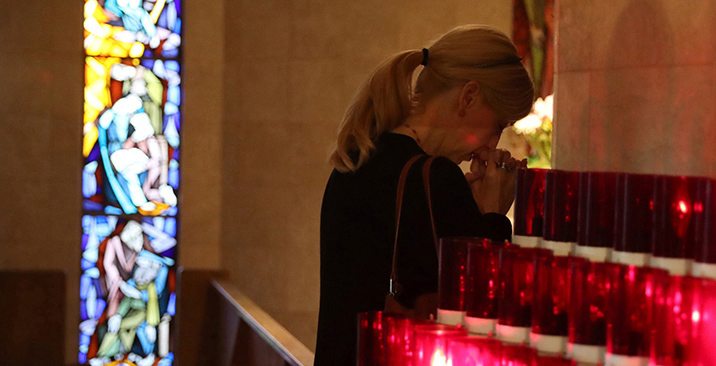Sin is for the most part a leap in the dark. A man knows he is doing a dangerous thing, but he does not realize the full danger. He does not take in the full scope of his action, nor its complete consequences.
St. Paul speaks of “the deceitfulness of sin” (Heb 3:13). The expression describes very well the source of that disappointment and unhappiness which often overtake the transgressor when he finds himself involved in difficulties from which it is all but impossible to extricate himself, and sorrows that he never anticipated.
Do you think that young people who develop habits of sin that undermine their health know all they are bringing on themselves: the weakness of body, the feebleness of mind, the early decay, the shame, the remorse, the impotence of will, the tyranny of passion, the broken vows and resolutions, the hopelessness, the fear — perhaps the premature disease and death? No, all this was not in their thoughts at first. These are the bitter lessons that [youths have] learned in the school of sin.
When the thieving businessman yielded to the glittering temptation, and made himself rich for a while with dishonest riches, did he then see before him the deeper poverty that was to follow? Did he envision the loss of all that makes a man’s heart glow and his life happy? Did he see the lies he must tell, the subterfuges he must resort to, the horrible detection of his crime, the loss of situation, the public trial, the imprisonment?
No. Of course, these possibilities were all daily in his thoughts, for they were part of the risk he knew he was running. But so little did he bring them home to himself, and the suffering he was to endure, that when they came it seemed almost hard, as if a wholly unlooked for calamity had overtaken him.
Wherever we look we find the same thing. Men imagine sin to be a lesser evil than it really is. It is so easy to commit it, it is so soon done, the temptation so strong, that it does not seem as if such very bad consequences would come of it. So it is done, and the bitter consequences come.
God’s Estimation of Sin
Before you allow yourselves to act on this estimate of sin, so prevalent in the world, ask yourself how it accords with God’s estimate of sin. That is the true standard. God is Truth. He sees things as they are, and everything is just what He considers it to be.
What, then, is God’s estimate of sin? Look at the Cross, and you will have the answer. “He was wounded for our transgressions, He was bruised for our iniquities; upon Him was the chastisement that made us whole, and with His stripes we are healed” (Is 53:5).
He suffered death because we deserved it. He was accursed because we had made ourselves liable to the curse of God. Hell had its hour of triumph over Him because we had made ourselves its children.
Here we have a revelation of the evil of sin. Since Christ died for sin, the cross of Christ is the measure of sin. “Consider the remedy,” says St. Bernard of Clairveaux, “and you will learn, my soul, the greatness of your danger. See how serious were your wounds, for which, in the plan of divine wisdom, it was necessary that the lamb Christ should be wounded. If your sins had not been unto death, and unto eternal death, never would the Son of God have died for them.”
Can anything show more than this what a mysterious evil sin is, that it is an offense against God, an assault upon His throne, an attack upon His life, an evil all but infinite? All the other expressions of the evil of sin — the cries of misery that it has wrung from its victims, the warnings that natural reason has uttered against it, the tender lamentations with which the saints have bewailed it, the penalties with which God has threatened to visit it — all pale before the announcement that God sent His Son into the world to die for it (see Jn 3:16).
Father Francis A. Baker (1820-1865) was a preacher of the Missionary Society of St. Paul the Apostle. This excerpt comes from “The Cross, the Measure of Sin,” published in his collected sermons in 1896.

